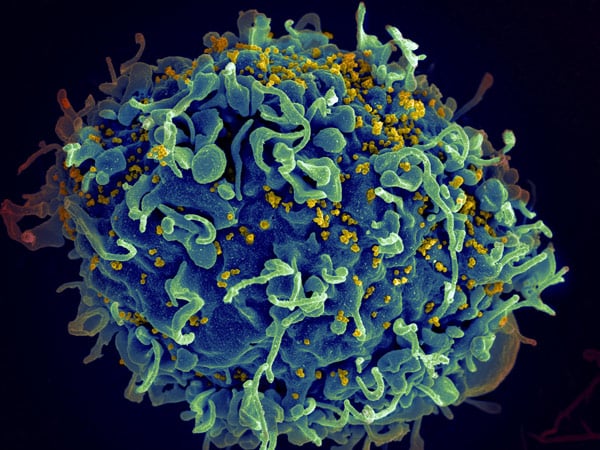Scientists from National Institutes of Health (NIH), Maryland, U.S., have identified an antibody called N6 which can be used to “treat or prevent HIV infection”.
The antibody which was identified from an HIV-infected person neutralised 98 percent of HIV isolates tested.
The scientists tracked how N6 had evolved over time in order to understand its development and its ability to potently neutralise nearly all HIV strains.
The research which was led by Mark Connors, M.D of NIH’s National Institute of Allergy and Infectious Diseases (NIAID), was able to identify the neutralising antibody against HIV.
Identifying neutralising antibodies has been difficult because the virus rapidly changes its surface proteins which have hindered the immune system from recognising it.
Scientists were able to discover an antibody called VRC01 in 2010 which was able to stop about 90 per cent of HIV strains from infecting human cells.
However, the recently discovered antibody may procure stronger treatment benefits and may safely prevent HIV infection in humans.
N6 could also avail scientists the opportunity to administer it into the fatty layer under the skin rather than intravenously.
“Findings from the current study showed that N6 evolved a unique mode of binding that depends less on a variable area of the HIV envelope known as the V5 region and focuses more on conserved regions, which change relatively little among HIV strains,” said NIAID.
“This allows N6 to tolerate changes in the HIV envelope, including the attachment of sugars in the V5 region, a major mechanism by which HIV develops resistance to other VRC01-class antibodies.”
Copyright 2024 TheCable. All rights reserved. This material, and other digital content on this website, may not be reproduced, published, broadcast, rewritten or redistributed in whole or in part without prior express written permission from TheCable.
Follow us on twitter @Thecablestyle


No good news. Our world is already overpopulated, especially Africa and South Asia. If we can cure HIV-patients, our world population will grow faster.
We really have already enough problems because of overpopulation. For example, by 2050 we won’t have enough food worldwide. And we already have a mass migration crisis in Europe.
It would be better to take care of the overpopulation problem. There are already some countries where politicans and health personal try so solve this problem with mass abortions, laws or financial incentives. Unfortunately often without mentionable success.
I am ready to help.